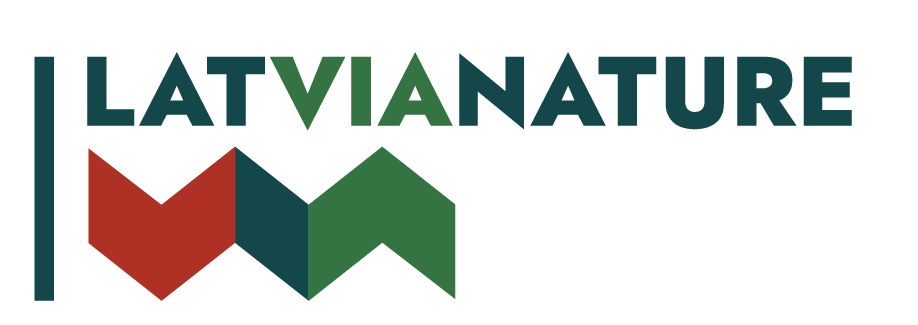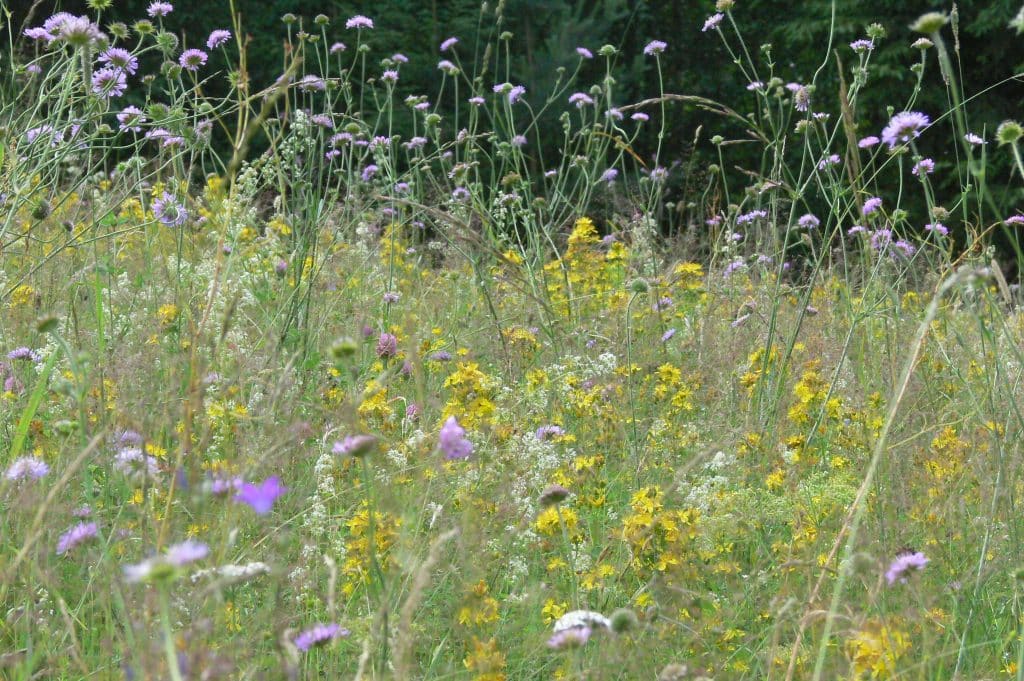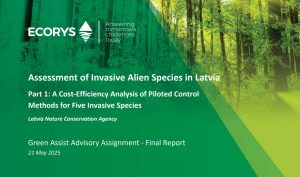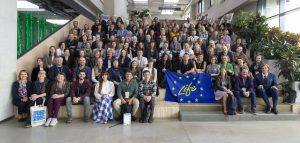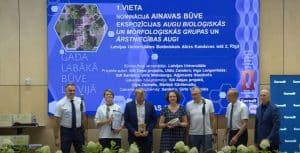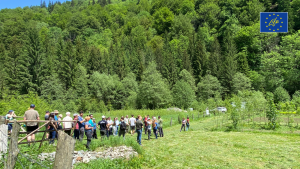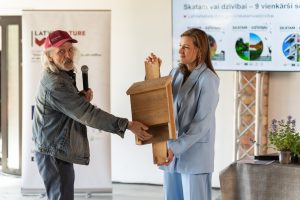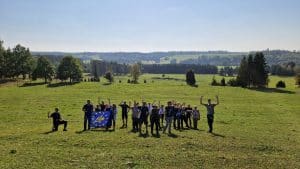The testing of new cooperation models within the pilot programmes will help with developing proposals for the improvement of motivating mechanisms for more effective involvement of private landowners in the conservation of nature assets at the national level.
“Research shows that a considerable number of grassland and forest owners would willingly pay more attention to the conservation of nature assets in their properties, if advisory and financial support were available for this. We have also observed in practice that landowners have a high interest in the conservation of natural assets on own land – the number of applications received in the grassland pilot programme were almost four times more than we could accept, but in the forest program – twice more. This proves that nature conservation programmes based on the initiative of landowners are demanded in Latvia, and they are another way to contribute to the conservation of Latvian nature assets. This is also an opportunity to test another innovation – the direct link between support payments and the results achieved in the improvement of biodiversity,” says Ģirts Baranovskis, Head of LatViaNature Compensation Division.
The total funding available in the programmes is 849 000 euro (405 000 euro for grasslands and 444 000 euro for forests). Participation in them is voluntary, on a contract basis in 2023-2027. Admission to the programmes was announced in the autumn of 2022. This year, applications from the farms corresponding to the programmes were selected applying certain criteria, contracts signed and the admission to the programmes completed.
In the “Blooming Meadow” programme, support payments depend on the achieved result
The aim of the “Blooming Meadow” programme is to help owners who manage perennial grasslands with features of naturalisation to reach the status of grassland habitats of European Union importance, namely, the quality of biologically valuable grasslands, so that they can receive permanent support for the conservation of nature assets in future. The programme enrols 70 farms from all over Latvia with a total area of 675 hectares.
The programme is testing an innovative approach to support payments in Latvia, where the amount of support (87-203 euro per hectare a year) is assigned according to the result – the higher the biodiversity achieved, the larger the financial support.
The members of the programme participate in trainings on supporting and assessing biodiversity, receive consultations from a certified grassland expert and individually developed grassland management plans. The quality of the structure of the grassland and the presence of species characteristic for natural grasslands are assessed by experts and the landowners themselves in the annual monitoring.
“Living Forest” – a programme for the conservation and formation of biologically valuable forests
The “Living Forest” programme includes 70 forest farms from all over Latvia with a total area of 349 hectares. The programme consists of three sub-programmes: “Habitat conservation”, which aims at maintenance of the most biologically valuable forest stands, “Habitat formation” – a sub-programme for purposeful increase of biodiversity in the forest, as well as “Nature-friendly forestry”, which aims at balancing the interests of forestry and the conservation of nature assets.
“Living Forest” introduces the contractual relations-based approach to the conservation of nature assets for the first time in Latvia. The forest owners, whose forests are not located in specially protected nature areas, but who undertake significantly higher than required standards of the conservation of biodiversity in their forests compared to legal requirement, participate in the programme.
In the programme, forest owners are provided with consultative and individually calculated financial support based on a methodology developed by experts. Also, training seminars on supporting biodiversity are being organized for forest owners, as well as consultations by a certified forest expert provided, and a forest management plan individually developed to conserve and improve biodiversity in the forest.
About the development of the programmes
The programmes of LatViaNature “Blooming Meadows” and “Living Forest” were developed by studying motivating mechanisms from other countries for contributing to biodiversity on private lands. Also, research on the opinions of forest and grassland owners on the possibilities of contributing to biodiversity and the willingness to perform it in their properties, as well as the needed support measures was conducted in cooperation with the Vidzeme University of Applied Sciences and the Latvian Rural Advisory and Training Centre.
The LIFE-IP LatViaNature Project of the Nature Conservation Agency coordinates both pilot programmes. The Ministry of Environmental Protection and Regional Development, the Latvian Rural Advisory and Training Centre and its Centre for Forest Consulting Services, the University of Latvia, the Latvian University of Biosciences and Technologies, the Vidzeme University of Applied Sciences and the WWF-Latvia participated in the development of the programmes.
About the LIFE-IP LatViaNature project
The pilot programmes are being conducted within the LIFE-IP LatViaNature Project “Optimising the Governance and Management of the Natura 2000 Protected Areas Network in Latvia” (LIFE19 IPE/LV/000010), which is being implemented with the financial support of the LIFE Programme for Environment and Climate Action of the European Union and the State Regional Development Agency. The Project aims at improving the nature protection management system in Latvia. During the Project, it is planned to develop innovative and appropriate approaches to solving actual nature protection issues and to implement the Prioritised Action Framework for Natura 2000 in Latvia, thus ensuring a favourable conservation status of habitats and species of European Union importance in Latvia. The project will be implemented by the end of 2028. More: LatViaNature.daba.gov.lv
